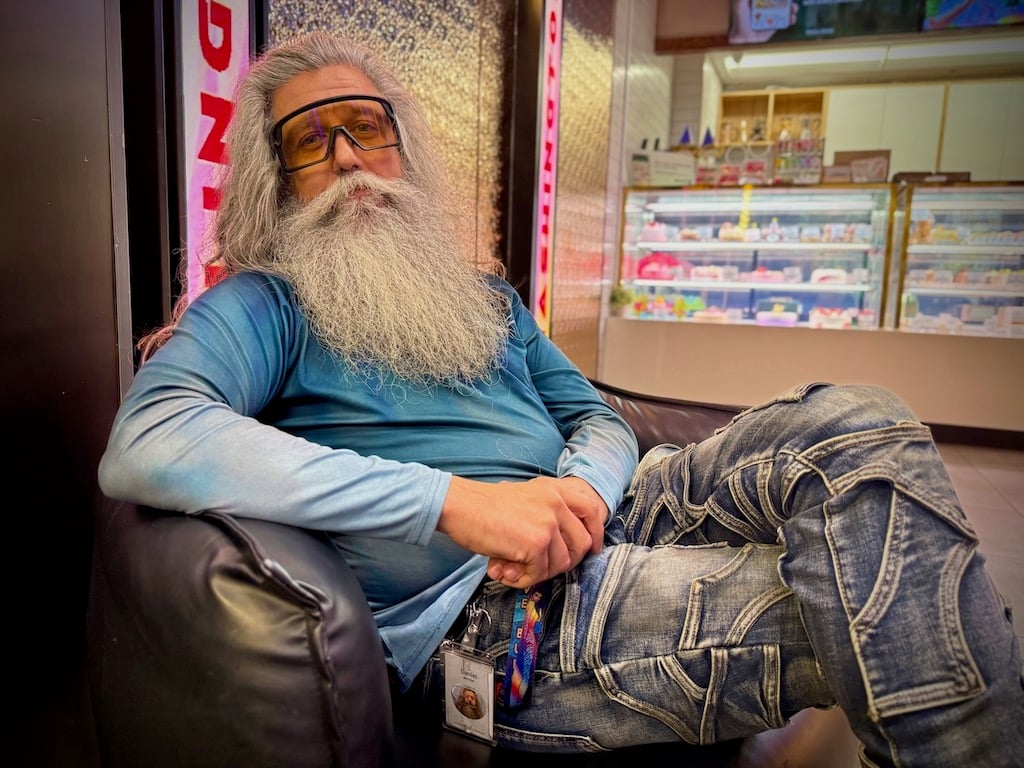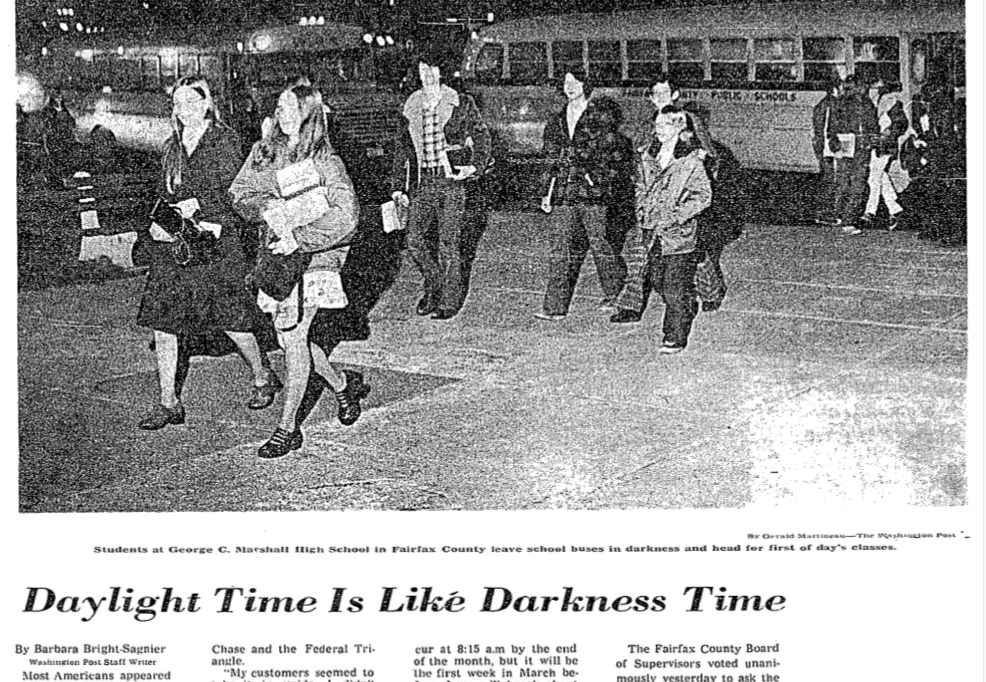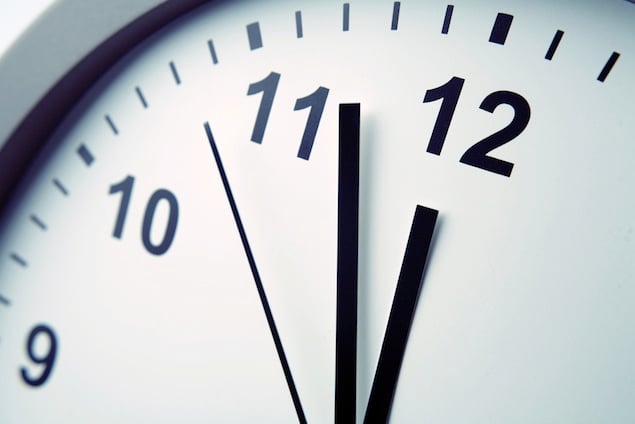The clocks will change this weekend—and not for the last time. There was a moment this past spring when the idea of making daylight saving time permanent seemed somewhat plausible: The U.S. Senate passed legislation in March that would have made March 12, 2023, the last time we ever set our clocks forward.
But that momentum evaporated as the war in Ukraine, inflation, and Don’t Worry Darling drama took up more space in Americans’ heads than feeling groggy twice a year did. The House of Representatives still hasn’t taken up the Senate bill, called the Sunshine Protection Act (though it did hold a hearing).
Also…did you hear that our country messed with messing with the clocks before? Washingtonian‘s most-read post of all time was about the U.S.’s last attempt to go to permanent DST in the early ’70s. Children went to school in the dark, and some got injured or even killed by inattentive drivers. “It’s time to recognize that we may well have made a mistake,” one senator said in January 1974, about a month after the change. A few months later, permanent DST was history.
“We haven’t been able to find consensus in the House on this yet,” says U.S. Representative Frank Pallone, whose committee heard testimony last March from the American Academy of Sleep Medicine (pro- perma-DST) and the National Association of Convenience Stores (pro-status quo).
In an interesting twist for this very polarized moment in U.S. politics, Pallone says opinions about DST break down by region rather than party. Indeed, 19 red and blue states have resolved or passed laws that would facilitate permanent daylight saving time if the feds act. Adding to the confusion, some sleep experts think standard time, not DST, should be permanent.
U.S. Senator Marco Rubio, who co-sponsored the Sunshine Protection Act that eventually passed the Senate with bipartisan support, agrees: “This isn’t a partisan or regional issue; it is a common sense issue,” Rubio tells Washingtonian in a statement. “States all around the country are passing laws to make DST permanent, but Washington, D.C., needs to act.”
A spokesperson for House Republican leader Kevin McCarthy has not yet replied to a query about whether the House may be more likely to consider Rubio’s bill if the GOP takes the majority. However, McCarthy has previously said he doesn’t think “it’s a good bill.” President Biden has stayed out of it so far.
Rubio says he’s not done: “I don’t know why the House refuses to pass this bill—it seems like they are rarely in session—but I will keep pushing to make this a reality.”
Pallone, however, is in favor of slowing down time: “We don’t want to make a hasty change and then have it reversed several years later after public opinion turns against it,” he says, “which is exactly what happened in the early 1970s.”

















